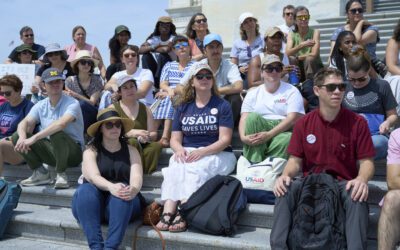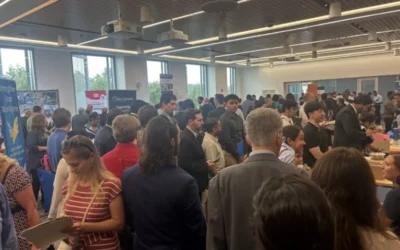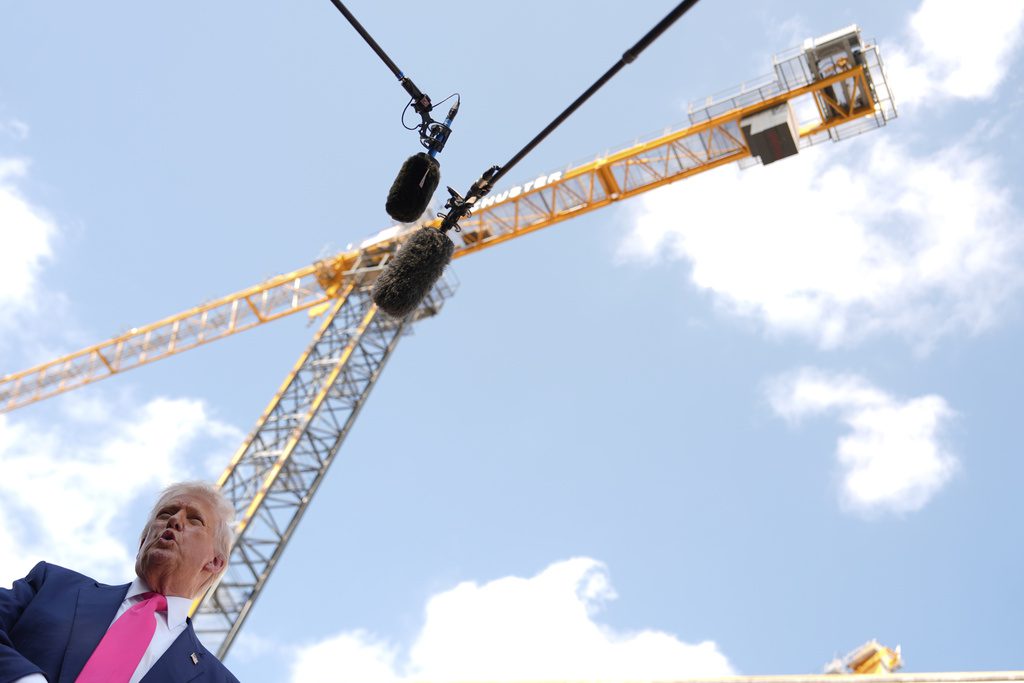
President Donald Trump visits the Federal Reserve, Thursday, July 24, 2025, in Washington. (AP Photo/Julia Demaree Nikhinson)
A weakening labor market in Virginia and at the national level has policy watchers nervous about a possible economic downturn.
Hiring is slowing in Virginia and fewer people are quitting their jobs as they brace for the possibility of a worsening economy due to the Trump administration’s federal cuts and tariff policies.
In June, 41,000 fewer people were hired for jobs in Virginia than in May, which was the largest decline in the country, according to a report released Wednesday by the US Bureau of Labor Statistics (BLS).
Virginia was also one of four states in June where fewer people quit their jobs than the month prior. The number of Virginians quitting their jobs fell by 19,000 in June, the BLS said.
The combination of slower hiring and more people holding onto their jobs is a warning sign for Virginia and the nation, both of which are already dealing with a worsening labor market and an expected uptick in prices because of President Donald Trump’s tariffs.
“Virginia seems to be a type of the canary in the coal mine there because none of the numbers per se are particularly surprising given that we’ve been expecting sort of a softening of the labor market,” said David Bieri, an associate professor of public policy at Virginia Tech.
Virginia’s unemployment rate was 3.5% in June and has increased every month since Trump began his gutting of the federal workforce. The University of Virginia’s Weldon Cooper Center for Public Service estimated last month that about 11,100 federal civilian jobs had been cut in Virginia and another 10,500 were at risk.
While Northern Virginia has been hit particularly hard by Trump’s federal cuts, the jobless rate has risen across the state. The Blacksburg-Christiansburg-Radford metropolitan area’s unemployment rate rose from 3.8% in May to 5.5% in June, and the Virginia Beach-Chesapeake-Norfolk metro area saw its jobless rate rise to 4% in June, up from 3.8% in May, according to preliminary BLS data.
At the national level, the unemployment was at 4.2% in July, but downward revisions to the number of jobs added in May and June have worried economists about the potential for the labor market to get worse as tariffs push up prices.
Bieri compared the challenges facing the economy to a forest fire that policy makers are trying to keep under control. When all the embers aren’t under control, then things can flare up again, he said.
“That’s currently where we are,” Bieri said. “And the tariff situation has certainly added fuel potential to that situation.”
Even as the full impact of tariffs on prices is yet to be fully felt, Trump’s import taxes have created enough uncertainty to give many companies pause in how they’re investing. Economists at the investment bank Goldman Sachs expect the costs of tariffs will also increasingly be passed onto consumers, according to a Bloomberg report, which will likely fuel further inflation.
As that national story plays out, Virginia is also dealing with the effect of Trump’s federal cuts, said Levi Goren, the research director at The Commonwealth Institute for Fiscal Analysis.
A common early feature of an economic downturn is that companies slow down on hiring, Goren said. As companies make fewer hires, it becomes harder for people to find jobs, and more people hang onto jobs they might have otherwise left, Goren said.
“If they’re nervous about the economic situation, they’re less likely to decide to go out on their own and start their own company or take a risk in another way,” Goren said.
A big question going forward is how America’s brittle support systems respond in the event of an economic downturn, Goren said.
During the last recession caused by the Covid-19 pandemic, Virginia’s unemployment system got overwhelmed, but recent investments in the system mean that hopefully things will be better the next time, Goren said. Meanwhile, Trump’s massive cuts to Medicaid and the federal food assistance program will stretch an already strained social safety net.
If people don’t have health care or are going hungry and spending less at grocery stores, there will be ripple effects across Virginia’s economy, Goren said.
“There’s sort of two concerns we’re looking at in terms of the safety net,” Goren said. “One is its ability to respond to the recession, and then also how the cuts to it may actually increase job losses.”
Support Our Cause
Thank you for taking the time to read our work. Before you go, we hope you'll consider supporting our values-driven journalism, which has always strived to make clear what's really at stake for Virginians and our future.
Since day one, our goal here at Dogwood has always been to empower people across the commonwealth with fact-based news and information. We believe that when people are armed with knowledge about what's happening in their local, state, and federal governments—including who is working on their behalf and who is actively trying to block efforts aimed at improving the daily lives of Virginia families—they will be inspired to become civically engaged.

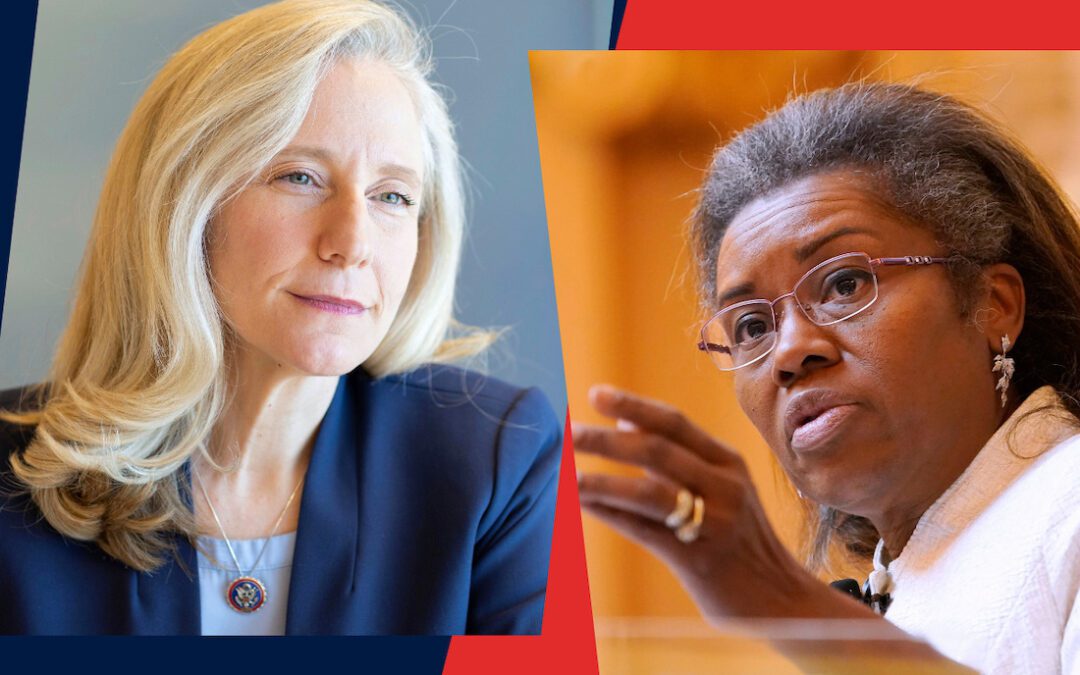
Earle-Sears, Spanberger trade barbs as Virginia shutdown woes worsen
At a contentious debate Thursday, the two candidates for governor offered differing views of how to handle the ongoing government shutdown. This...

Government shutdown could hurt Virginia workers
A government shutdown would mean some civilian federal workers and members of the military in Virginia would work without pay and possibly lead to...

Trump cuts expected to cost Virginia hundreds of millions in next state budget
Legislative staff warned that the impacts of Trump’s spending cuts will be felt for years to come over multiple budget cycles. The impacts of the...

Democrats launch tour to hold Earle-Sears accountable for downplaying Trump’s job cuts
Thousands of federal workers in Virginia have lost their jobs, and Lt. Gov. Winsome Earle-Sears has struggled to respond without seeming dismissive...
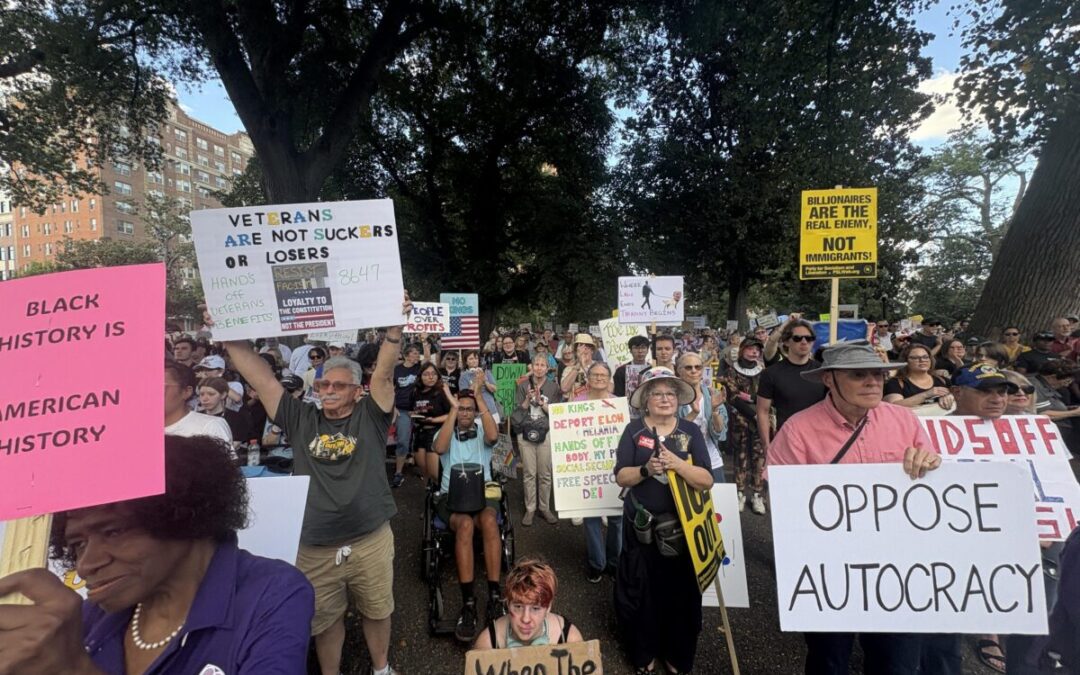
Virginians protest Trump’s anti-worker policies at Richmond Labor Day rally
Speakers urged workers to organize to fight back against poverty wages and union busting. Hundreds gathered in Richmond’s Monroe Park on Monday to...

Arlington, Alexandria daycare costs rank among nation’s highest
Childcare is inaccessible to many, but Northern Virginia takes the cake on expenses. Republicans and Democrats can agree that childcare in the US is...




